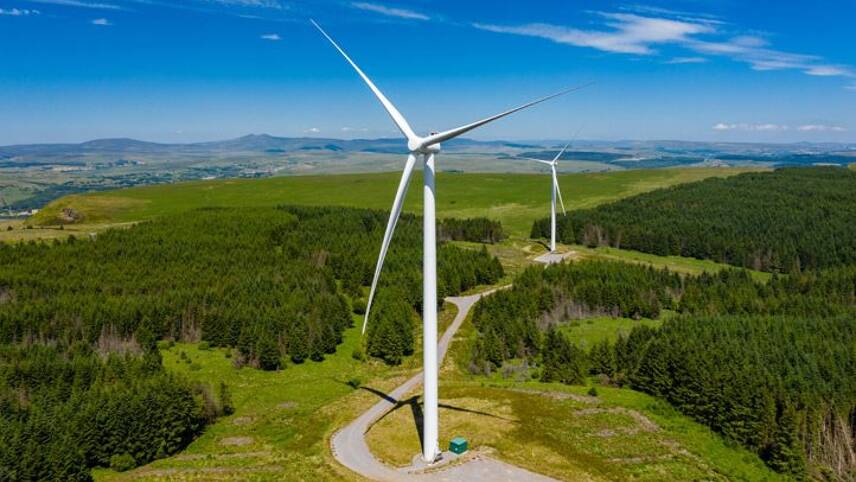Register for free and continue reading
Join our growing army of changemakers and get unlimited access to our premium content

turbines at a large onshore windfarm on a green hillside (Pen y Cymoedd
Labour’s 187-page 30 by 2030 report details how 1.9% of GDP would be spent each year to transform and radically decarbonise the energy sector. The allocated GDP is the same that was set aside to help meet the UK’s Climate Change Act by 2050.
The plan identifies four key areas, and 30 subsequent recommendations to transform the sector over the next decade; reducing energy waste in buildings and industry; decarbonising heat; boosting renewable and low carbon electricity generation and balancing the UK’s supply and demand.
Rebecca Long Bailey MP, Labour’s Shadow Business and Energy Secretary, said: “This report makes a major contribution to Labour’s plans to kickstart a Green Industrial Revolution. The Labour Party has among the most ambitious climate targets in the world and is the only party turning their targets into detailed, credible plans to tackle the climate and environmental crisis.
“Inaction on climate by Conservative and Lib-Dem Coalition Governments has led to a lost decade in the race to cut emissions from our energy system. The recommendations in this report could put the UK on track for a zero-carbon energy system during the 2030’s – but only if rapid progress is made early on. The next five years are therefore crucial. We are working with trade unions to ensure that the changes to our energy system will be planned democratically, with the interests of workers and local communities at the heart of the transition.”
Labour Party members backed a pledge to reduce greenhouse emissions to net-zero by 2030 – two decades earlier that the government’s current target – at their party conference in September.
The commitment is part of the Green New Deal motion which delegates at the party’s conference in Brighton voted to adopt by an “overwhelming majority”.
Since then, Labour tasked an independent group of energy experts to create blueprints that would offer a feasible pathway to net-zero emissions in the energy sector by 2030.
The resulting report’s 30 recommendations include upgrading every UK home with energy-saving measures, tackling fuel poverty, installing eight million heat pumps, installing 7,000 offshore wind turbines and 2,000 onshore turbines and tripling the UK’s current solar panel capacity.
The report claims that this would provide an £800bn benefit to the UK economy and create 850,000 new skilled jobs in green industry.
Labour’s plan
The Labour party motion also commits the party to take Great Britain’s energy networks and biggest energy suppliers back into public ownership, introduce a complete ban on fracking and make large-scale investments in renewable and low-carbon energy.
Yesterday, shadow business and energy secretary Rebecca Long-Bailey announced plans for the government to build and take a majority stake in 37 new offshore windfarms by 2030 with a capacity of 52GW.
Commenting on the report, The Renewable Energy Association’s head of external affairs Amy MacConnachie said: “In particular, we welcome the emphasis on decarbonising heat and creating a flexible energy system. As outlined in our Flexible Futures Report launched today, a flexible energy system is the key to unlocking the energy transition. Equally important is the decarbonisation of heat but despite the end of the renewable heat incentive less than two years away, the progress needed to decarbonise is not happening quickly enough. Labour are right to highlight the urgency of addressing these areas.
“However, we warn labour against dismissing the role of bioenergy technologies which the REA Bioenergy Strategy has recently demonstrated could sustainably account for 16% of the UKs primary energy needs by 2030. Implementing the whole system change needed to achieve Net Zero in the timeframe we have is challenging and complicated. To do this, we need to ensure cross-party cooperation and well thought out policies entrenched in fairness, science and practicality.”
Matt Mace


Please login or Register to leave a comment.